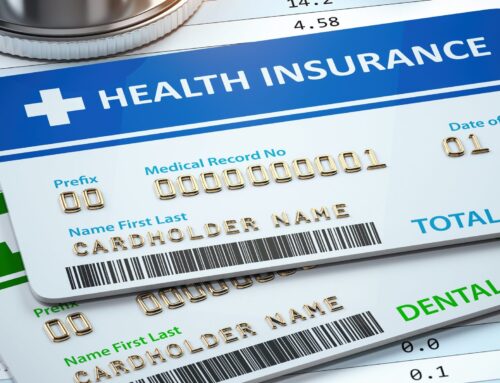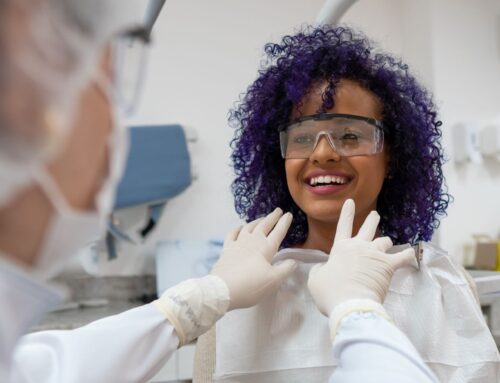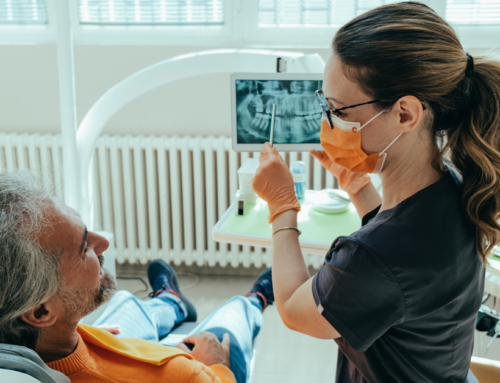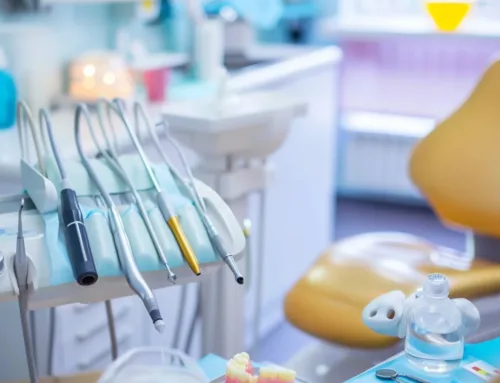Understanding Dental Exams – A Complete Breakdown of a Typical Dental Exam
It’s recommended that people visit their dentist every six months to undergo an examination. This allows a dentist to make sure their patient’s teeth are in a healthy state. Additionally, they can determine whether previous issues are healing as expected and it provides an opportunity to uncover any new dangers to one’s teeth, jaw or gums.
Not everyone loves visiting the dentist even for just a checkup. Part of the anxiety comes from not understanding what is being done to their mouth, and not recognizing how necessary each part of the exam is with respect to their oral and overall health.
Dental exams are routine and important. To help encourage you to book your next appointment and to quell any concerns you might have, we’ll breakdown the typical examination. This will cover what you should expect and delve into the reasoning and necessity behind each element.
Purpose of a Dental Exam
The purpose of a typical dental exam is to clean a patient’s teeth and to ensure that no issues are present. This can also include checking for warning signs that allude to larger problems, some of which could worsen if untreated.
Most exams last about 45-60 minutes and involve performing several minor procedures. If a problem is detected during examination, your dentist will discuss this with you, review the next steps and determine what treatment option makes the most sense.
The purpose of an exam is to:
- Evaluate overall oral hygiene
- Review the risk of tooth or root decay
- Review the risk of gum or bone disease
- Determine if a tooth needs to undergo a restoration
- Check for jaw issues or problems with biting
- Clean the teeth and remove plaque and stains
- Take X-rays to diagnose deeper issues that are not visible
If you already have a dentist and aren’t apprehensive about your next appointment, then there’s not much you have to do in advance. On the other hand, if you don’t have a dentist than finding one should be the priority. If you live in an area that has several clinics, you can narrow the list by reading online reviews or asking your friends and family for recommendations.
Preparing for Dental Exam
If you tend to experience anxiety about these appointments, you should prepare yourself prior to arriving at the clinic. There isn’t one method to deal with dental anxiety so be sure to do whatever you need to help you feel comfortable. Many people seek assistance from mental health professionals to deal with this issue, because the last thing you want to do is avoid your dentist altogether.
We’d also recommend speaking to your dentist about any trepidation you are feeling as they can offer advice or adjust the examination to suit your needs. For instance, they can incorporate frequent breaks or create a hand signal for you to use if you want them to stop. Most dentists or hygienists will be happy to take you through the process as they go if that will help put you at ease.
Individual Elements
Most appointments start with the dentist or hygienist reviewing a patient’s dental history including their last checkup. They will usually ask some questions about your at-home routine and if you have been experiencing any pain or discomfort since the last visit.
Dental exams performed by most clinics include the following elements. Please note that what elements are included are based on a patient’s dental coverage, previous checkup or something they experienced since their last appointment.
Cleaning
The cleaning portion of an exam is an opportunity for the dentist or hygienist to check for cavities and search for any signs of gum disease. A patient will have their teeth cleaned, flossed and, in some cases, polished. They could also have fluoride treatment performed on their teeth.
Unless a red flag presents itself during the appointment, most checkups will focus on thoroughly cleaning a patient’s teeth.
X-Rays
X-rays are an important part of most checkups. They allow a dentist to see detailed perspectives of the mouth that are typically hidden from view.
At Georgian Dental, we only take digital X-rays. This greatly reduces radiation exposure to both our patients and staff. Additionally, digital X-rays allow for a more thorough examination and fits into our mandate of only using the most advanced technologies and safest methods.
By knowing everything about your teeth, jaw and gums, your dentist can offer the best treatment and make sure you avoid many common oral issues.
Oral Cancer Exam
These exams are a chance for a patient to receive an oral cancer screening. This includes examining the jaw, neck, tongue, cheeks, inside the lips and the roof and floor of a mouth for the early warning signs.
The signs and symptoms a dentist will look for include:
- Red or white spots or sores
- Sores that are bleeding and haven’t healed
- Lumps or rough spots
- Pain, tenderness or numbness anywhere in the oral cavity
- Difficulty with any oral function like chewing or swallowing
This is particularly important for patients who smoke tobacco products, drink alcohol or have an unhealthy diet. Like any form of cancer, oral cancer can be a severe health risk if not diagnosed early and dealt with immediately.
Dental Impressions
Like X-rays, impressions are often taken during a routine exam but are not a required step for every checkup.
Dental impressions are replicas of the jaws and teeth. This lets the dentist examine a patient’s teeth to see if there are any issues with their bite or to create a nightguard or bleaching tray.
An impression is made by filling a horseshoe-shaped tray with a material similar in consistency to gelatin. These trays are placed over the upper and lower teeth. The patient must hold them in their mouth for a few minutes to create a cast. Additionally, a patient might be asked to bite down on soft material to allow the dentist to review their bite.
A patient’s case and needs will dictate the more specific elements of an exam. For example, if a patient has a history of grinding their teeth then their nightguard will be examined to make sure it is functional and to see how much wear and tear it has endured since the last inspection.
Outlining Next Steps
Before a dental exam ends, the dentist will sit down with you to review their findings and if they discovered anything that requires you to book an additional visit.
They will also provide guidance on your oral hygiene routine to make sure you are taking care of your teeth in between appointments. The idea is to offer preventative measures to make sure the next checkup is as smooth as possible.
If something like a cavity or decay is found, your dentist will communicate the diagnosis and outline their treatment recommendation, including when you should book your next appointment. It’s recommended that you book the appointment while you are in the clinic so that you don’t forget.
Visit us Today!
If you’re due for an exam and looking for a new clinic in Barrie, Ontario then take advantage of our free, no-obligation consultation. We would be happy to run you through our approach and services and to help you understand what to expect from a dental exam.
Appointment Request
If you’re interested in any of our procedures, and would like to meet with one of our dentists to discuss options, costs and get additional information, complete this short form and we’ll give you a call to arrange for a no-obligation appointment at our Barrie clinic.










